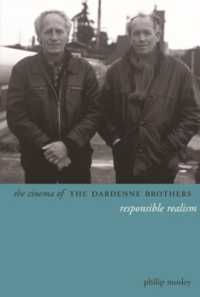- ホーム
- > 洋書
- > 英文書
- > History / World
Full Description
In this cultural history of Cuba during the United States' brief but influential occupation from 1898 to 1902--a key transitional period following the Spanish-American War--Marial Iglesias Utset sheds light on the complex set of pressures that guided the formation and production of a burgeoning Cuban nationalism. Drawing on archival and published sources, Iglesias illustrates the process by which Cubans maintained and created their own culturally relevant national symbols in the face of the U.S. occupation. Tracing Cuba's efforts to modernize in conjunction with plans by U.S. officials to shape the process, Iglesias analyzes, among other things, the influence of the English language on Spanish usage; the imposition of North American holidays, such as Thanksgiving, in place of traditional Cuban celebrations; the transformation of Havana into a new metropolis; and the development of patriotic symbols, including the Cuban flag, songs, monuments, and ceremonies. Iglesias argues that the Cuban response to U.S. imperialism, though largely critical, indeed involved elements of reliance, accommodation, and welcome. Above all, Iglesias argues, Cubans engaged the Americans on multiple levels, and her work demonstrates how their ambiguous responses to the U.S. occupation shaped the cultural transformation that gave rise to a new Cuban nationalism. |In this cultural history of Cuba during the United States' brief but influential occupation from 1898 to 1902--a key transitional period following the Spanish-American War--Utset sheds light on the complex set of pressures that guided the formation and production of a burgeoning Cuban nationalism.








